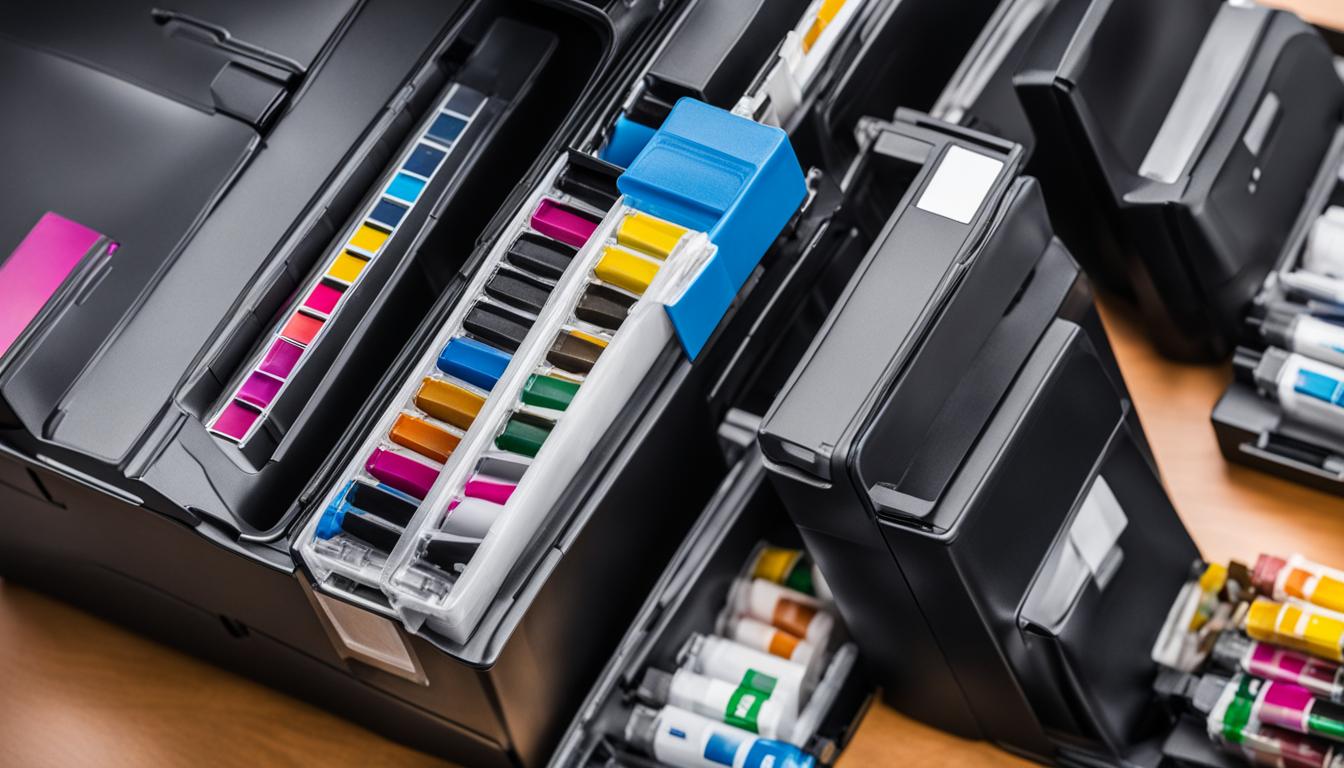With the rise in popularity and demand for ink tank printers, it's important to weigh the pros and cons before investing in one. While ink tank printers offer various benefits, it's essential to be aware of the potential downsides they may bring. In this section, we'll explore the drawbacks of ink tank printers to help you make an informed decision based on your specific needs.
Key Takeaways
- Ink tank printers have various drawbacks you should consider before purchasing one.
- Some of the significant disadvantages include high initial cost, slower printing speed, limited color options, and bulky design.
- Potential ink spillage and lower portability are other challenges that come with ink tank printers.
- Although ink tank printers offer cost-effective ink usage and higher page yields, these benefits may not be worth the downsides for all users.
- It's crucial to determine your specific printing needs and consider whether an ink tank printer is the best fit for you.
High Initial Cost
When considering ink tank printers, one of the primary drawbacks is the high initial cost. These printers tend to be more expensive compared to traditional inkjet printers upfront. However, the long-term savings on ink cartridges can offset this cost. Brands like Canon, Epson, and HP offer ink tank printers with prices ranging from $200 to $500.
The high initial cost of ink tank printers can be an obstacle for some consumers, particularly when a printer is needed for personal use. However, for those who frequently print a high volume of documents or photographs, the cost savings realized with an ink tank printer can quickly offset the upfront expense.
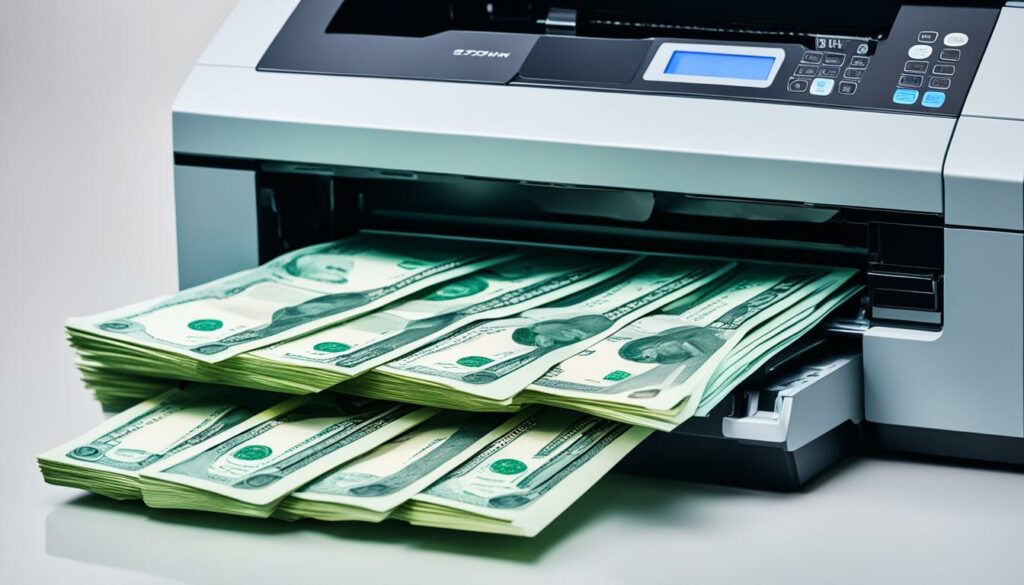
Comparing Initial Costs of Ink Tank and Traditional Inkjet Printers
| Printer Type | Brand & Model | Average Price |
|---|---|---|
| Ink Tank Printer | Epson EcoTank ET-2760 | $299.99 |
| Traditional Inkjet Printer | Canon PIXMA TR8520 | $179.99 |
| Ink Tank Printer | HP Smart Tank Plus 651 | $449.99 |
| Traditional Inkjet Printer | HP OfficeJet Pro 9015e | $329.99 |
As shown in the table above, ink tank printers are generally more expensive compared to traditional inkjet printers, but the difference in price can vary depending on the brand and model selected.
Print Speed
Ink tank printers are well-known for their low cost of ownership and high page yield. However, these printers often have slower printing speeds compared to laser printers, especially when printing in large quantities or high-resolution images. As ink levels run low, the refilling process can cause printing delays, which may not be suitable for those with high volume printing needs.
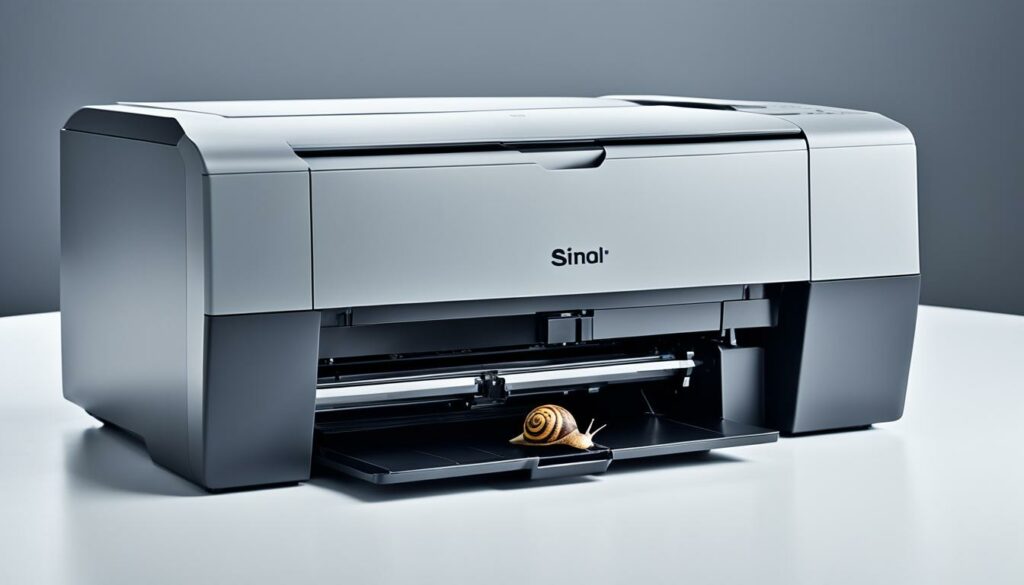
Note: While the printing speed of ink tank printers can be slower than other printers, keep in mind that it may not be a significant issue for all users. Printing speed can also vary depending on the printer model and settings.
Print Quality Issues
Ink tank printers are known to encounter print quality problems that can affect the accuracy and clarity of your prints. The direct injection of ink into the print head can cause certain colors to appear less vivid or inconsistent compared to traditional inkjet printers. Additionally, the print head may become clogged or blocked, resulting in streaks, smudges, or banding on your prints.
It's important to note that not all ink tank printers experience these issues, and the severity of the problem can vary depending on the brand and model of the printer.

When shopping for an ink tank printer, be sure to read reviews and test prints to ensure that the printer meets your expectations for consistent prints.
Limited Color Options
While ink tank printers offer many benefits, their limited color range can be a drawback for certain types of printing projects that require a restricted color palette. Unlike traditional inkjet printers, which use separate cartridges for each color, ink tank printers mix colors using a combination of cyan, magenta, yellow, and black ink. As a result, they may not produce as vibrant or accurate colors, especially for graphics or photographs that use a wider range of colors.
If you need precise color matching, particularly for professional or commercial applications, it may be worth considering other printing options, including laser printers or traditional inkjet printers.
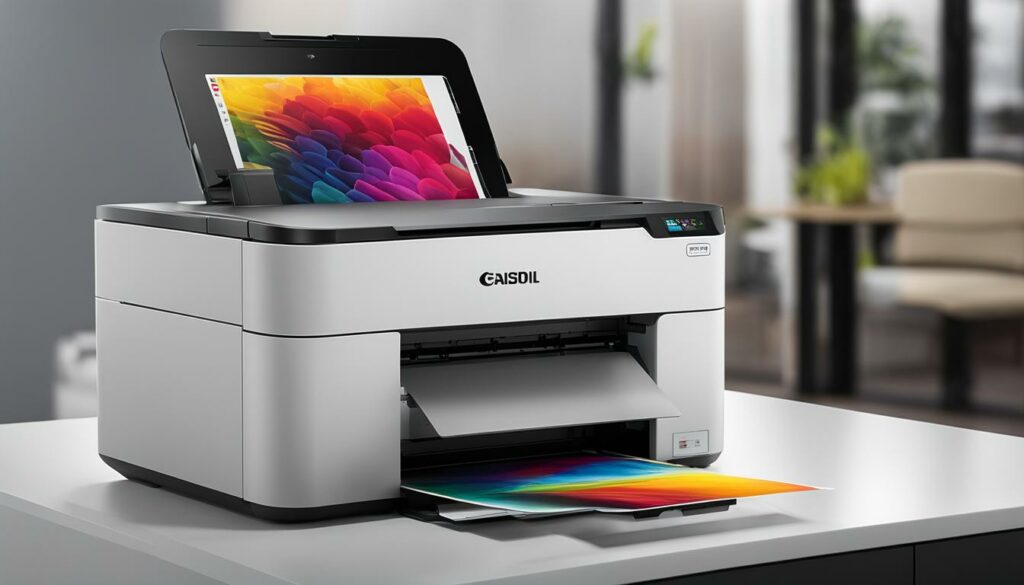
Potential Ink Spillage
Refilling the ink tanks in an ink tank printer can be a messy process, which poses a risk of ink spillage if not appropriately handled. Taking caution while refilling the ink tanks is essential to avoid any accidental spills. A single spill can make a mess of surfaces and damage the printer if not cleaned promptly. Additionally, ink can easily stain clothes or other electronics if it comes into contact with them during the refill process. Therefore, every user must handle the ink filling process with utmost care to prevent these unfortunate events from happening.
One of the effective ways to prevent ink spills is to use the right ink refilling equipment. Regular ink cartridges can be refilled using a syringe which can make the task easier to control. Similarly, ink tank printers come with specific ink refilling equipment, such as nozzles and filling funnels, designed to make the ink filling process easier and mistake-proof. Also, one can place a sheet of plastic or paper beneath the ink tank and refill it slowly to avoid any accidents.
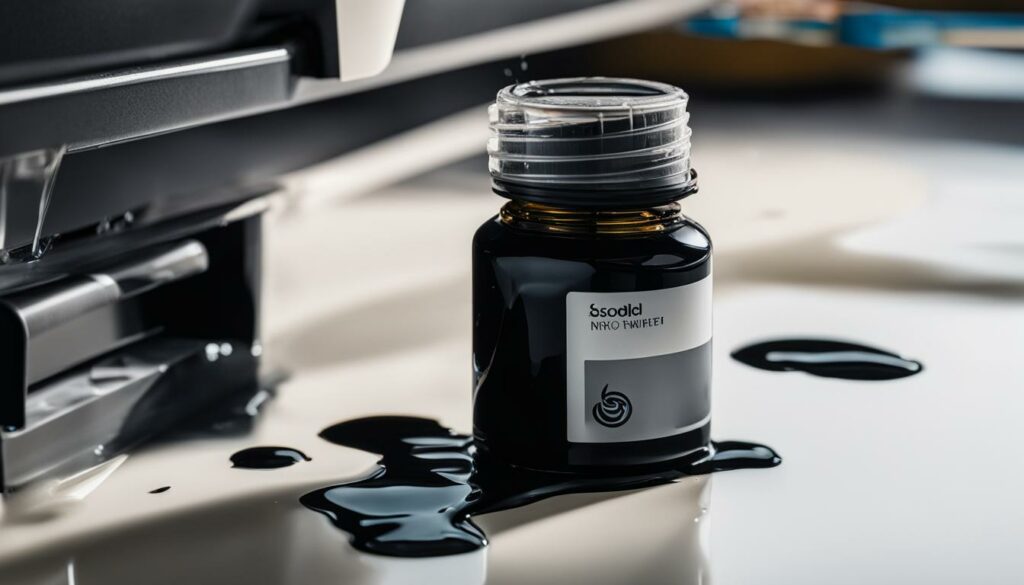
“Every printer user must take every safety measure when handling ink refills to avoid any potential ink spillage and its damaging effects to the printer and other equipment.”
Bulkiness
Ink tank printers often have a bulkier design compared to compact inkjet printers, which may require more space in your office or on your desk. This could be a drawback to consider if space is limited. However, the larger size of ink tank printers is due to the ink tanks that hold a higher volume of ink, resulting in fewer ink refills and lower ink cartridge costs in the long run.
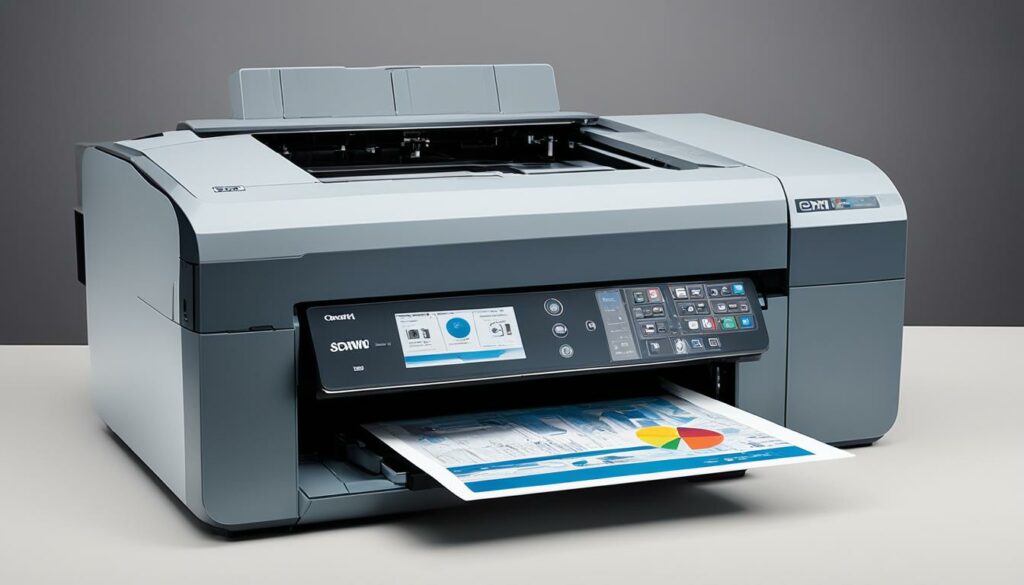
Lower Portability
Ink tank printers come with a bulkier design that makes them less portable compared to smaller inkjet printers. Such printers are difficult to move around and may require lots of space, which can be irritating for people with minimal workspace. Not only this, but such big sized printers create trouble when you need to relocate from one place to another frequently. If you frequently need to move your printer or use it in different locations, the lack of portability can be a significant disadvantage for you.
The risk of damage during transit could mean that the printer may also require additional maintenance, leading to more time and money spent. Therefore, if you're looking for a portable option or have a small space to work in, ink tank printers may not be the best choice for you. It is essential to consider the size and weight before purchasing an ink tank printer to avoid any issues with portability later on.

Conclusion
Ink tank printers can be an excellent investment for those who print frequently and in large quantities. They offer cost savings on ink cartridges and higher page yields, making them a more economical option in the long run. However, it is essential to consider the drawbacks associated with these printers.
The high initial cost, slower print speed, inconsistent print quality, limited color options, potential ink spillage, bulky design, and lower portability are all factors to keep in mind. It is crucial to weigh these disadvantages against the benefits before making a purchase, particularly if you have high-quality printing needs or limited desk space.
Ultimately, whether you choose an ink tank printer or a conventional inkjet printer will depend on your specific printing needs. By understanding the advantages and disadvantages of ink tank printers, you can make an informed decision that meets your printing requirements and budget.

I'm Morgan, the creator of VPNForMe — a site born from too many hours spent side-eyeing sketchy VPN reviews and buffering videos.
I wanted a place where people could get straight answers about privacy, streaming access, and which VPNs actually deliver — without the hype or tech jargon.

